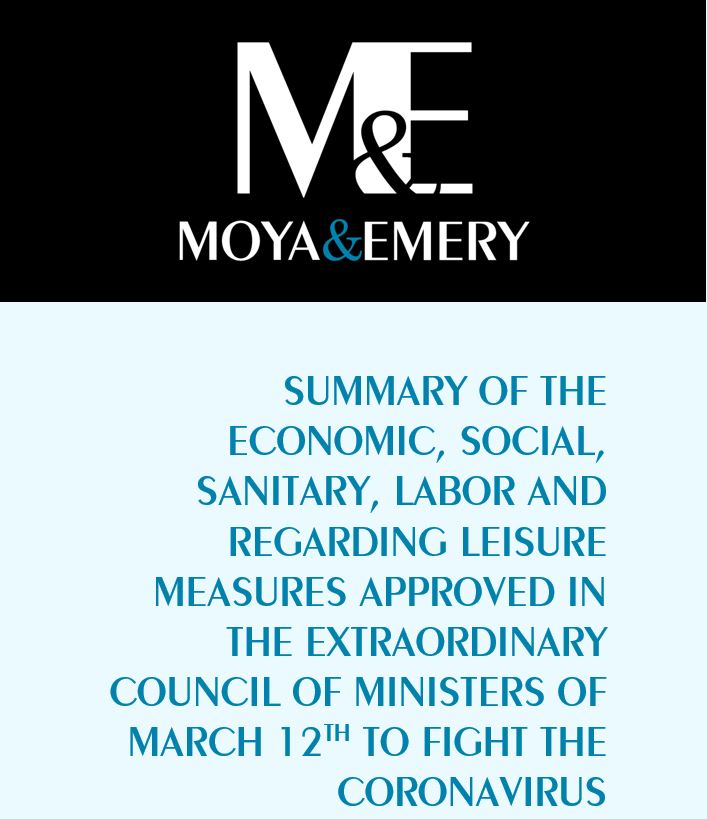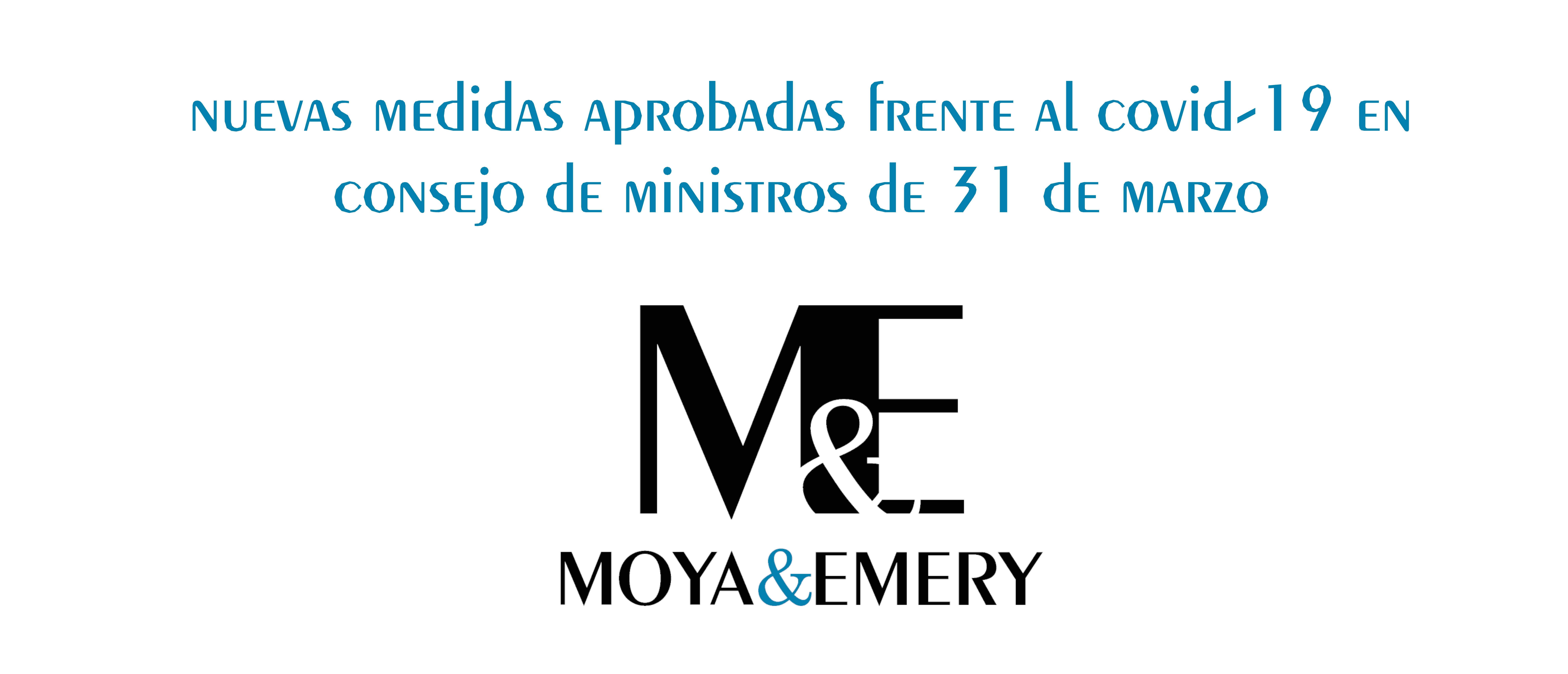The economic measures included in today’s Royal Decree Law are a first package of urgent measures, which will take effect immediately. But these will not be the last measures.
This afternoon I will have a videoconference, as you know, with the Social Agents, specifically with the leaders of the main unions and employers, to explain the measures adopted and discuss with them other possible necessary actions, which would be approved in the following days, such as benefits for working families for the care of children due to the closure of the educational centres to which I have previously referred (or others such as internal adjustment measures for staff to protect employment or temporary postponements of social contributions for PYMES).
Naturally, the economic response to this emergency would be facilitated if we could already count on new General State Budgets, which are increasingly urgent. Some General Budgets that will have to be no longer social, because they will have to alleviate the ravages of an emergency that is sanitary but is also economic. If new budgets were necessary a month ago, the crisis we are going through makes them urgent.
IN THE TAX FIELD
- Deferrals and instalments of your tax debts with the Administration for a period of six months, without interest. In other words, we are going to grant deferrals of their tax debts with the Administration for 6 months without interest
- Deferral of repayment of loans from the Ministry of Tourism, Industry and Commerce to industrial companies
IN THE SCHOOL FIELD
Cancellation of educational activities (kindergartens, schools and universities) and encouraging distant and online training.
IN THE WORK FIELD THE FOLLOWING IS RECOMMENDED
- Promotion on behalf of the companies to carry work out by teleworking.
- Preparation and updating, when appropriate, of business continuity plans of the company where the updates to be carried out due to the situation originated by the coronavirus.
- Promotion of flexibility of hours and staggered shifts
- Teleconference meetings are better alternatives to conventional meetings.
IN THE TRANSPORT FIELD
- Avoid trips which are not essential.
IN THE SANITARY FIELD
- All people who start having respiratory symptoms and / or fever should remain at home, avoiding going to their workplace and health centres as long as their clinical condition allows it.
- All elderly people or those who suffer from chronic or multipathological diseases or with states of congenital or acquired immunosuppression, should avoid leaving their home or residence except in cases of strict need and, in any case, should avoid crowded places where it is not possible maintain an interpersonal safety distance of at least one meter.
- Promote home care for the elderly.
- Restriction of access to the patient’s companions in hospital emergencies and social and health centres. It is recommended to reduce visits to elderly people who are in social and health centres.
IN THE LEISURE FIELD
- All cultural events and activities involving more than 1.000 assistants in closed spaces will be cancelled.
- All cultural events and activities involving less than 1,000 assistants must reduce their capacity to 1/3 to ensure a distance of at least 1 meter between assistant.
- All national and international sports events, professional and non-professional, will be held behind closed doors or cancelled.
- Suspend Imserso travel for one month, as they are the most vulnerable group to this disease, our elderlies, and we have established that all major sporting events, professional and non-professional, in national or international competitions, are held behind closed doors in all our country.
IN THE WORK FIELD
- Expanding the Social Security bonuses in discontinued fixed contracts, so that these bonuses now cover the months of February to June 2020.
- Infected people – or in preventive isolation – are considered to be temporarily disabled due to professional contingencies. This implies that, from the day following the sick leave, these people receive 75% of the regulatory base charged to the Public Administration.
- Recommend teleworking to avoid displacement. Or, in the case, the organization of staggered shifts in companies to reduce concentrations of people and the consequent risk of infection.
Given the economic-labour-work measures that the President of the Government has communicated after today’s Extraordinary Council of Ministers, it seems that the most effective measure that the company will have to do will be the processing of the CRISIS file consisting in the suspension of employment contracts of its workers temporarily. This file is better known as ERTE- Temporary Business Regulation File.
The ERTE allows various actions, such as:
- Suspension of employment contracts temporarily. They go on to collect unemployment benefit (PARO)
- Reduction of the working day and jointly share with the SOIB the payment of the wages with the payment of the employment subsidy (PARO).
- Negotiate new salary conditions (salary reduction without touching the working day).
- Dismissal of Workers for economic reasons.
PROCEDURE
Documentation for temporary suspension of employment contracts or reduction of working hours.
The procedure begins by communicating the opening of the consultation period through a letter from the employer to the legal representatives of the workers, a copy of which will be sent, together with the communication, to the Labour Authority.
The consultation period with the legal representatives of the workers will last no more than 15 calendar days (if there is an agreement between the workers and the company, the process can be started immediately)
COMMON DOCUMENTATION TO ALL PROCEDURES FOR SUSPENSION OF CONTRACTS OR REDUCTION OF WORKING HOURS
A) Official forms duly completed, specifying the causes of the suspension of contracts or reduction of working hours.
B) Official annexes of affected workers duly completed, indicating their number and professional classification, for the purposes of their future referral to SEPE. When the regulation file affects more than one work centre, this information must be broken down by centres, and in the case, province and Autonomous Community.
C) Number and professional classification of workers regularly employed in the last year. When the regulation file affects more than one work centre, this information must be broken down by centres, and in the case, province and Autonomous Community.
D) Power of Attorney that proves the legitimacy of the representative who formulates the communication on behalf of and representing the company. In the event that it is a natural person, D.N.I. of the person making the communication.
E) Specification and detail of the measure of suspension or reduction of working hours.
F) Criteria taken into account for the appointment of the workers affected by the suspension or reduction measure.
G) Report explaining the cause of the suspension or reduction of working hours of the contracts.
H) Documentation accrediting the conjunctural situation of the company’s activity.
I) Information on the composition of the workers’ representation, as well as the negotiating committee for the procedure, specifying in the event of several work centres affected if the negotiation is carried out globally or differentiated by work centres. Likewise, the work centres without unitary representation and communication document referred to in the section must be informed. 4, Art. 26, Royal Decree 1483/2012, of October 29, or, where appropriate, minutes relating to the attribution of representation to the commission mentioned in the aforementioned provision.
J) Request for a report to the legal representatives of the workers, in accordance with letters a) and b) of section. 5, Art. 64, Statute of Workers.
K) Accredit delivery of the documentation collected in Art. 17, Royal Decree 1483/2012, of October 29th.



